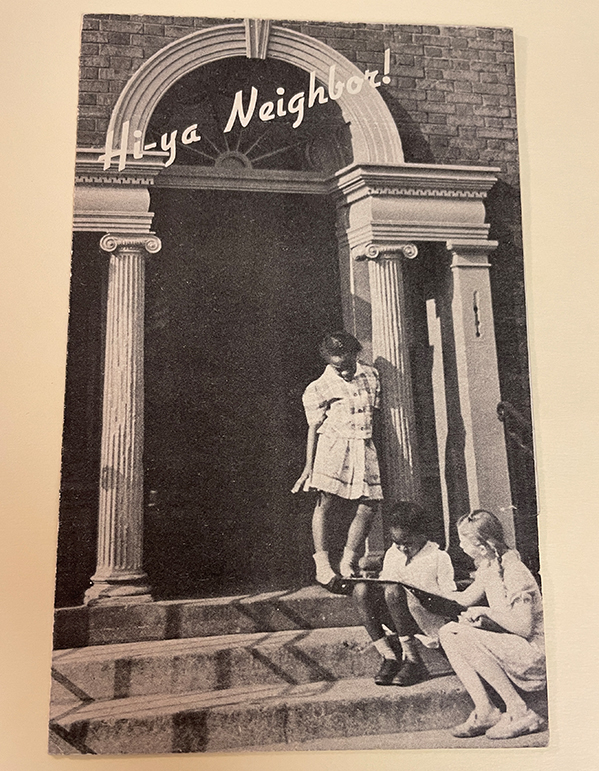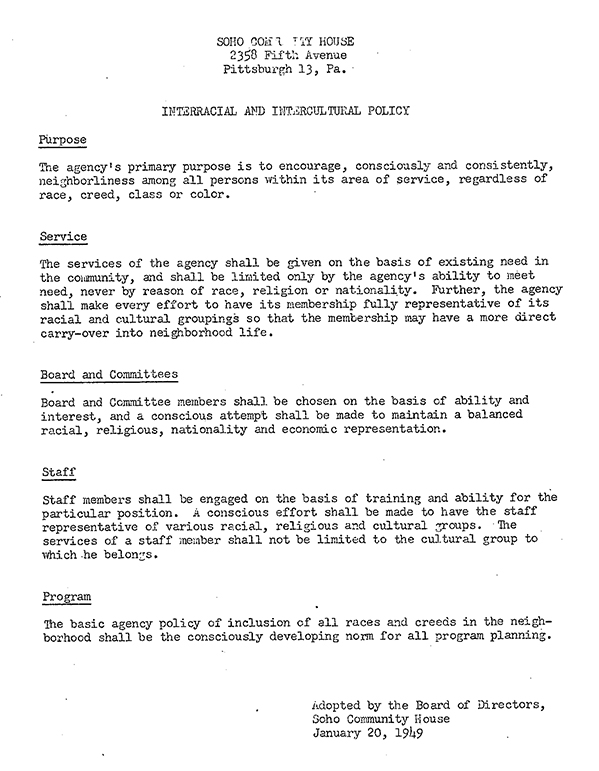Please note that some library services (Ask Us, Get It, ILL, EZBorrow) will not be available during winter recess: December 24 - January 4
A Notice on Harmful, Offensive, or Misrepresentative Archival Description and Language
The University of Pittsburgh Library System strives to steward the materials within our possession with the highest level of cultural sensitivity. Within Archives & Special Collections, we aim to describe our archival materials in a way that is respectful to, and informed by, the communities who use, create, and are represented in our collections. However, as you read or browse our archival finding aids (i.e., a written description of an archival collection) or use the content available online through our digital collection sites (ULS Digital Collections, Historic Pittsburgh, and Documenting Pitt), you may encounter language that is harmful, offensive, or misrepresentative. Due to the nature of the historical materials, there will be occurrences of language, positions, and values that do not align with our current values and practices at the University of Pittsburgh.
When harmful, offensive, or misrepresentative language is supplied by the creator of original archival materials to describe or name them, it is recognized as best practice to retain such information so as not to censor or alter the historical record and to maintain an understanding of the context of creation. Some examples of circumstances when offensive or harmful language may be retained are as follows:
- Organization names that include outdated terms.
- An individual identifies themselves using term(s) that are no longer accepted within the community.
- The title or language from an unpublished and published book, article, journal, film, or song.
- Language from original historical documents in collection descriptions when it provides additional value and can be illustrated or expressed in no other way.
When we have chosen to retain potentially harmful or offensive language or description (due to the reasons outlined above), its presence has been flagged in our archival finding aids using an advisory warning. When searching or browsing our finding aids, if language identified using the Hatebase Lexicon is present, a note titled “Content Warning” will appear within the collection abstract of the finding aid, allowing you to choose whether you wish to proceed with viewing the document.
We also acknowledge there are situations when archival description and language can and should be corrected. Because language, conventions, and archival best practice is always changing, what might have been considered appropriate for past description of archival materials is no longer acceptable. This can occur in several places: the title or description of an item, the title or description of a digital collection, or within the finding aid for a collection of materials. Individuals are welcome to contact us concerning any archival description they come across via “Ask-an-Archivist.” Thank you!






